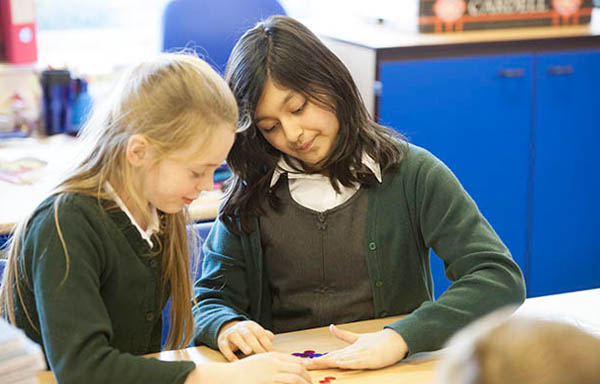Are you talking about who I’m talking about?

This year International Developmental Language Disorder Day falls on 19th October 2018. Raising awareness is all about making sure the topic is always in circulation and ensuring that people are also aware of what that topic is. Susan McMackin, one of our speech and language therapists has joined the discussion with this post.
‘Specific language impaired’, ‘language learning disabled’, ‘language disordered’, ‘communication impaired’ and children with ‘speech language and communication needs’ (SLCN) are only some of the terms used by professionals across disciplines (i.e. Psychology, Education, Allied Health like Speech Language Therapy, Paediatric Medicine, and Psychiatry) to refer to a cohort of children presenting with the same profile of impairment.
The confusion about both the criteria and terminology for these children has affected access to services and hindered research in the field. At the heart of the debate lies a lack of agreement about whether environmental factors like low levels of parental education or poverty, etc., or biomedical conditions such as hearing loss, autism spectrum disorder, brain injury, or general learning difficulties amongst others are included or excluded from the classification. But thanks to the multidisciplinary panel CATALISE we’ve got there … finally a consensus has been reached!!
Developmental Language Disorder (DLD) refers to children with language difficulties that create obstacles to learning and communicating in everyday life and are unlikely to ‘catch up’ spontaneously AND where the condition is NOT associated with other biomedical conditions.
Let’s look more closely at this group. DLD diagnosis includes:
- Low to Average IQ: Traditionally normal range non-verbal IQ has been part of the criteria for diagnosis for this group, but as it is not supported by research evidence this is no longer the case.
- Neurodevelopmental Disorders: presenting language difficulties related to attention, behaviour, motor skills, literacy, speech, executive function or adaptive behaviour can still be classified as DLD.
- Environmental Risk Factors: presenting language difficulties associated with poverty, family history, low-level parental education, neglect/abuse, and problems before/at birth can still be classified as DLD
The term 'language disorder associated with' is used where a child has language problems associated with biomedical conditions (as above) the term used encompasses both language disorder and Developmental Language Disorder is the broad term speech, language and communication needs (SLCN) which refers to all children with speech, language and communication needs for any reason.
The issue of classification is about clarity! Clear communication will help raise the profile for this group, attract more research and ultimately help resolve the fundamental questions about who should receive intervention and which interventions work … To this end, we owe it to children to be clear.
Do you want to learn more about DLD and SLCN? Find out more in our blogs and in The Link magazine.
Developmental Language Disorder - The Voice of the Children and Young People
On 28th April 2018, NAPLIC held its annual conference in Birmingham, drawing a host of Speech and Language Therapists and other professionals working with children and young people to its talks focusing on Developmental Language Disorder.
How does DLD fit in with Language Link and where has ‘language delay’ gone?
Information about the change in terminology being used for children with language difficulties is in abundance online. But what are the changes in terminology and what do they mean for our Language Link users?
DLD And Me: Supporting children and young people with Developmental Language Disorder
Speech and Language Therapists Amanda Finer and Anna Sowerbutts, have recently won the RCSLT Sternberg Award for Clinical Innovation for their project ‘DLD and Me’. We are thrilled that they have written for our latest The Link magazine, read more here about DLD and Me.
Raising awareness for Developmental Language Disorder (DLD)
We share our ideas for how you can help raise awareness of this important, but hidden, disorder.
Developmental Language Disorder in 2020
Speech and Language Therapist, Sophie, tells us all about what DLD is and why we need to know about it.
The Link magazine Issue 13: Raising Awareness of DLD
Developmental Language Disorder (DLD) is a diagnosis given when a child or adult has difficulties talking and/or understanding language, where there is not any known cause for the language difficulty.
The Link magazine Issue 15: DLD Awareness Day
The more we know about DLD, the more children and young people with the condition can get the right information, help and support. Everyone working with children and young people has a role in spreading the word about DLD.
The Link magazine Issue 16: DLD and Me
Developmental Language Disorder is a lifelong condition that should be on the radar of all educators. Anna Sowerbutts and Amanda Finer, SaLTs, offer their top tips for creating a strong partnership with children with DLD.